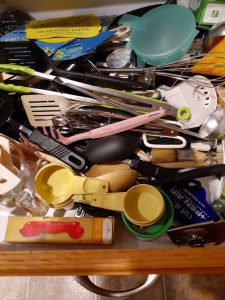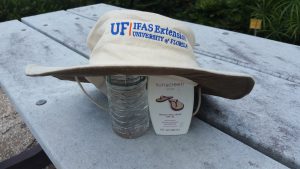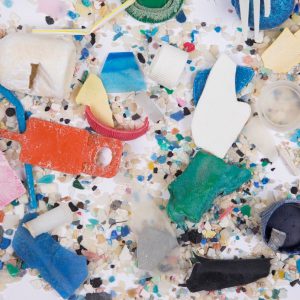
by Angela Hinkle | Sep 15, 2020
Most of us know there is a great deal of cleanup after a disaster hits. But how often do you think about what to clean before disaster strikes?
Here are some helpful cleaning measures you can do before a storm or other calamity so your burden is not so great after.
Outside
Mow the Lawn
If your lawn is mowed low and even now, you won’t have tall grass to trudge through later. Refill any gas cans and/or re-charge any lawnmower batteries after mowing. It will be much easier to pick up and remove any debris that lands on the mown lawn. And you may need to use the gas in the filled can to operate other equipment for the after-cleanup.
Trim, Whack, and Blow
Trim the hedges, whack down those weeds, and blow those leaves now. Otherwise, you may later find yourself with a big mess on top of a big mess.
Bring It In
Bring in any garbage cans, lawn furniture, or other yard items that could make a mess if blown over, broken, or made into dangerous shrapnel.
Inside

Lightning storm. Photo Source: UF/IFAS
Leave No Piles
Make sure there are no dirty dishes in the sink or the dishwasher. Make sure everything is cleaned, dried, and put away. Then, if you lose electricity after the storm or are not sure of the safety of your water, you don’t have to worry about clean plates to eat on, glasses to drink from, or utensils to eat with. And you don’t have a mess to look at or a stink from the sink to deal with.
Clean, dry, and put away all the dirty laundry now. If you lose that all-important electricity later, you won’t have to worry about stepping over piles of clothes or wonder how you’re going to deal with wearing the same dirty clothes over and over again. If you have a generator, you could use that to clean your clothes, but most of the time those generators are best used to keep food safe in the refrigerator or to operate emergency equipment.
Scrub
If your bathroom tub is scrubbed clean now, you can fill it with water for flushing toilets, cleaning, or purifying and using as extra drinking water. You can also take a relaxing, cleansing bath from a hard, dirty day’s work after the storm.
And cleaning a dirty toilet now means you’ll have one less thing to have to deal with later – along with everything else on your to-do list.
Get Rid of It
Make sure the garbage can, recycle bin, and compost container are all emptied. The last thing anyone needs is old piles of trash with new piles of trash added on top.
Been meaning to give away those extra items (knick knacks, doodads, toys, etc.) you don’t use or like anymore? Doing that now makes for a cleaner house as opposed to having more “stuff” in the house, adding to the mess you may have to deal with later.
Clear the Clutter
Pick up papers, bills, tools, and any other important items that may be on various surfaces throughout the house (you may actually want to eat on that dining room table some day). Then organize them together in a safe place. This helps to keep them from getting water damaged or tossed around and you’ll be able to find them later.
Have your emergency kit filled and ready to go in a plastic tub or waterproof container. Make sure everyone in the house knows where it is. For other disaster preparation and recovery resources, go to https://disaster.ifas.ufl.edu/ and/or talk with your county UF/IFAS Extension Agent.
If your home or property are destroyed in a disaster, these measures probably won’t really help much. But if all is not lost and there is just some debris and damage cleanup to be done after a large weather event, the above measures taken before can alleviate a lot of extra stress after. And if there is no disaster, hey, your house is nice and clean. Relax and enjoy it!
Make sure you clean before disaster strikes.

by Angela Hinkle | Aug 10, 2020
You may be spending more time creating and experimenting in your kitchen these days. But are you taking the time to clean and enjoy the beauty of the kitchen when you’re not making those new culinary masterpieces? Here are 11 super simple kitchen cleanups that can take away the stresses caused by kitchen grime, stink, and clutter.
That’s Dirty!
- Dust and Cover
For space between upper cabinets and the ceiling, begin by using a duster (and soapy sponge if needed) to get rid of all those dust bunnies. Then lay down wax paper (which holds the dust) or newspaper, paper grocery bags, or parchment paper. Then you can just lift the old paper and put down new a few times of year without having to clean years of dust and grime by hand. You may want to start with this because dust may fall from the top. Then work your way down to the rest of the kitchen.
- Clean the Microwave
Add about one cup of water to a large microwave-safe bowl. Cut a lemon in half. Squeeze the lemon juice into the bowl then add the lemon halves too. Microwave on high for about 2 minutes until the liquid boils and the window steams up. Don’t open the door yet; let the bowl sit for about 5-10 minutes. The steam loosens the gunk. Then it’s just an easy wipe down with a sponge inside and out.
- Wipe Down Surfaces
Wipe cabinet shelves and doors, counter tops, and trashcans with warm soapy water. Use the rough side of a double-sided non-scratch sponge for stuck-on areas and the softer side for crumbs and easier messes. You can also disinfect these surfaces with a spray bottle filled with a solution of one tablespoon bleach to one quart water, using paper towels to wipe dry.

Ever Cleaned?
Photo: A. Hinkle
- Scrub a Stove-top

Clean/ready to cook.
Photo: A. Hinkle
First, wipe down with warm soapy water. Put half a cup of baking soda in a bowl. Then slowly pour in hydrogen peroxide, mixing until it becomes a thin paste. Pour a little paste on the stubborn spots and rub with a heavy-duty paper towel or rag. The stains should come right off. For stubborn stains, pour a bit more of the paste onto the stuck-on stain and let it soak for about 10 minutes. Then scrub, scrub, scrub some more until the stove-top is completely clean.
(Check manufacturer’s directions for smooth top stoves.)
- Wash the Refrigerator
Take out shelves, drawers, and other removable parts of your refrigerator and freezer and wash with hot water and dish soap – just as if they were dishes. Wash the inside walls and door compartments of the refrigerator and freezer with a solution of 2 tablespoons baking soda and 4 cups warm water to clean and reduce any strong odors. Rinse with clear warm water and dry with a soft cloth. Wipe off all jars and dishes as you replace them in the refrigerator.
Wash the outside of the refrigerator and freezer with hot soapy water, rinse, and dry. Don’t forget the door gaskets – sticky gaskets can cause air leaks, using more energy over time.
That Stinks!
- The Garbage Can
Sprinkle baking soda into the bottom of the trash bag to help keep the shudder-inducing smellies away and/or add a cotton ball soaked in essential oils to add a nice scent.
- The Stinky Sink
First, run hot water down the drain. Follow that with a cup of baking soda. Finish off with a cup of lemon juice. This fizzy reaction is fun to do with the kids.
- That Refrigerator Smell
Placing an open box of baking soda on a shelf in the refrigerator gets rid of most smells. If your unit has a pan or plastic tray on the very bottom to collect the condensation or defrost water, remove and clean it once or twice a year. Dust and moisture in this pan can lead to mold growth and cause health problems for persons with allergies. It also can develop an unpleasant odor. Check your care manual for the location of the pan.
That’s Got to Go!
- Food – Organize, Keep, Toss
Go through your refrigerator, freezer, and pantry and throw away anything that is expired, moldy, or you have no idea what it is. (To learn more about Use-By, Sell-By, and Best-By dates on food packages, check out Understanding Date Labels.) FIFO (First In First Out) your pantry foods by placing the older foods at the front and newer foods in the back. This way, you use up the foods that will expire first. Throw away any foods with freezer burn.
- Herbalicious…or Not
Toss out any herb or spice containers that are past their best-if-used-by date. Herbs and spices begin to quickly lose their wonderful tastes and aromas after this date. If it has no date and you have no idea how long you’ve had it, best bet is to throw it away.

That Kitchen Drawer
Photo Source: A. Hinkle
- That Drawer
Where is that ladle? I know I put it in this drawer. Why is the kitchen tool I want to use always at the bottom of the utensil (or junk) drawer? And why do I have five corkscrews when I don’t even drink wine? Help beat these frustrating dilemmas. De-clutter and organize this drawer. Start by taking everything out – yes, everything. Pick out things you never use. If you’ve had a melon baller for 10 years and used it once nine years ago, put it in a giveaway pile. Put four of the five corkscrews in that pile too. Throw away anything that’s broken or unusable. Wipe out the drawer using a sponge and warm soapy water or disinfectant wipes. Refill the drawer starting in the bottom/back with those tools you don’t use as often. Work your way forward and up with the tools you use most often. Ah, so much better now, and from now on.
Try tackling two or three of these tips a week. You can complete the whole list in one month. Your kitchen will be cleaner and more comfortable, and you can be less stressed and happier.

by Samantha Kennedy | Jul 16, 2020
An abundance of sunshine is one of the many reasons why so many people love Florida. In fact, it is why we are known as “The Sunshine State.” However, while the sunny days provide tons of opportunities to enjoy the great outdoors, too much sun exposure can lead to minor injury, serious illness, or even death.
The harsh UV rays from the sun can begin to damage the skin in as little as 15 minutes. In fact, even if the skin is not outwardly burned, it may be damaged underneath. Continued unprotected short-term exposure adds up over time, leading to more serious skin damage such as melanoma.

Sunscreen, ample water, and a good hat are all excellent precautions against problems with the summer sun. (Photo source: Samantha Kennedy)
Adopting a few sun safety practices greatly reduces the risk of serious skin damage. One simple practice is the daily application of sunscreen, even on cloudy days, as UV rays can penetrate cloud cover. A minimum Sun Protection Factor (SPF) of 15 is recommended for exposed skin, including lips. Do not use sunscreen past its expiration date, as it may not be as effective.
Eyes should be protected as well, as prolonged exposure to the sun can lead to vision loss or even blindness. Sunglasses which protect against both UVA and UVB rays offer the best protection. Wraparound sunglasses offer the most comprehensive protection of both the eyes and the tender skin surrounding them.
Cover other exposed skin as much as possible with dry, loose-fitting clothing whenever possible, on top of wearing sunscreen. Reapply sunscreen every two hours, especially during continuous sun exposure and after swimming, sweating, and toweling off.
Children under one year of age should be kept out of the sun as much as possible. Keep babies in the shade of a tree, umbrella, or stroller canopy at all times. Older children should follow the same precautions as those given above. Keep in mind, very young children cannot state it is too bright or too hot, so be extra vigilant.
Staying cool and hydrated is also important during those hot summer days. Even those who are acclimated to the climate can easily fall into the dangerous trap of dehydration and overheating. Paying attention to the body’s needs will help prevent heat stress and more serious heat-related illness.
The sun is at its hottest and most brutal between the hours of 10 a.m. and 4 p.m. Reducing outdoor activities between these hours can help reduce the risk of overheating. If this is impossible, be sure to take frequent breaks in a cool, shady spot to help maintain proper body temperature.
Lightweight, light-colored clothing reflects heat better than heavier, darker colors. Hats with wide brims going all the way around are ideal and offer more protection to the ears, neck, and scalp. Baseball caps are fine, but be sure to use a cloth in the back that drapes over exposed skin for more protection.
Drink plenty of fluids constantly. Plain water is the best choice to maintain proper hydration. Avoid alcohol, caffeine, and high amounts of sugar, as these can promote water loss, leading to dehydration. Find a shady spot or an air conditioned space to retreat to periodically throughout the day to keep from overheating.
Some symptoms of heat exhaustion include excessive sweating, confusion, dizziness, weakness, and nausea. Seek shade or air conditioning immediately.
Anyone experiencing an elevated body temperature, hot and dry skin, continued nausea or vomiting, and/or loss of consciousness may be suffering from heat stroke or other severe heat-related illness. Seek medical attention right away.
Florida’s sunshine draws millions of visitors a year. But for visitors and residents alike, it can be dangerous without the proper precautions. By being sun smart, the dog days of Florida’s summer will not take a bite out of the fun.
Resources:
Be Safe in the Sun (American Cancer Society)
Sun Safety (Centers for Disease Control and Prevention)
UF/IFAS is an Equal Opportunity Institution.

by Dorothy C. Lee | Apr 16, 2020
Even during our ‘Safer at Home’ orders, we must use our vehicle if we are essential workers or run necessary errands. Learn safe car cleaning practices from UF IFAS Extension Escambia County to help minimize your risks during local travel.
Disinfect Your Car
During this time of extreme sanitizing don’t forget your car.
- Cleaning the steering wheel is a must. Use disinfecting wipes.
- Touchscreen displays require extra care, disinfect displays using a microfiber cloth sprayed with eyeglass cleaner.
- Vacuum seats and floorboards thoroughly and often.
- Wipe consoles and dashboards with hot soapy water, rinse and let air dry.
- Clean door handles with disinfecting spray or wipes.

by Heidi Copeland | Mar 25, 2020
It’s hard to believe, but Wednesday, April 22, 2020 marks Earth Day’s 50th anniversary. As far as anniversaries are concerned, the 50th is definitely a milestone, often commemorated with something lasting and treasured.
Kind of ironic then that this year’s Earth Day theme is “Climate Change.” According to the Earth Day Network, this theme represents the biggest challenge to the future of humanity and the life-support systems that make our world habitable.

All these tiny pieces of plastic started out as bigger pieces of plastic, which broke down over time and ended up in our waterways. (Photo source: Tyler Jones, UF/IFAS)
This year’s theme harkens back to 1970, when the first Earth Day was celebrated with an objective to spread awareness. Twenty million Americans (10% of the country’s population at the time) protested environmental ignorance and demanded protections for our planet. These demands eventually led to the passage of landmark environmental laws in the United States, including the Clean Air, Clean Water, and Endangered Species Acts. Many countries soon adopted similar laws.
As Extension agents, we are tasked with providing research-based, reasonable, and helpful information on a variety of topics that can improve people’s lives. Climate change is a divisive issue. In fact, a University of Florida IFAS Extension EDIS fact sheet called “Challenges in Communicating Climate Change to Extension Audiences” outlines the many challenges of discussing climate change with typical audiences.
| Six Americas Audience Categories |
Description |
You might hear |
| Alarmed |
Convinced global warming is a serious and urgent threat; highly engaged; most likely to change behavior |
I’m so upset and worried about the future. |
| Concerned |
Convinced global warming is a serious threat; somewhat engaged; less likely to change behavior |
I think this is something politicians should address |
| Cautious |
Believe global warming is a problem but not a personal or urgent threat |
So what is it all about? |
| Disengaged |
Give little thought to global warming; change beliefs easily; not perceived as a problem for them |
I have other things to think about, like how to pay the bills. |
| Doubtful |
Not sure if global warming is happening |
Seems like climate always changes. This is a political issue. |
| Dismissive |
Firmly believe global warming is not occurring; highly engaged in preventing change in policies; very knowledgeable |
It is arrogant to believe that people can change the climate. This graph shows the scientists have it wrong. |
Nonetheless, Extension agents are well-informed and desperately care for the health and welfare of their families, neighbors, and communities. Especially now, as collectively, we all are facing an uncertain future.
The coronavirus pandemic has stressed our lives right now. Everyone is grappling with change. Everyone is worried about human health. Even with everything else going on, Earth Day is a yearly reminder to exercise our collective responsibility. As one human race, we just can’t sit back and relax and hope everything turns out okay. It is going to take some work.
So instead of feeling like our time is being wasted by staying at home, perhaps we can spend this time in a positive way. I heard a news commentator recently say something along the lines of not letting this time we all have now to use us, but for us to use this time to come out better on the other end.
Like Helen Keller famously said, “Alone we can do so little; together we can do so much.” Let’s start together.
Here are some tips and resources for saving energy, money, and the environment:
Save Energy, Save Money (https://www.energy.gov/energysaver/energy-saver)
-
- Install a programmable thermometer
- Hang clothes to dry when you can
- Look for energy star appliances when shopping for a replacement
- Change to energy efficient light bulbs
Understand personal water consumption (https://www.epa.gov/watersense/how-we-use-water#Daily%20Life)
Say NO to plastic (https://www.epa.gov/trash-free-waters/toxicological-threats-plastic)
-
- Carry your own reusable bag
Eat with a conscience (http://www.floridaclimateinstitute-uf.org/)
-
- Eat more meatless meals
- Don’t waste food
- Cook more
Think about personal consumption (https://moneytalk1.blogspot.com/2020/03/when-things-seem-out-of-control-control.html)
-
- Consume less
- Waste less
- Enjoy yourself more
Support your leading environmental movements. Youth around the globe are passionate about this. They worry, and rightly so, about what is going to happen, now and in the future.

by Melanie Taylor | Mar 12, 2020

Speak openly with your doctor about any concerns you may have regarding your health. (Photo source: Tyler Jones, UF/IFAS)
We are in the depths of flu season and now the Coronavirus (COVID-19). Although we need to proceed with caution, we also want to avoid causing a panic. Both viruses are very concerning, but with good hand washing skills and a few other daily steps you can do your best to prevent you and your family from becoming sick.
Hand washing is one of the best ways to protect yourself and your family from getting sick. You can help yourself and your loved ones stay healthy by washing your hands often, especially during these key times when you are likely to get and spread germs:
- Before, during and after preparing food
- Before eating food
- Before and after caring for someone at home who is sick with vomiting or diarrhea
- Before and after treating a cut or wound
- After using the toilet
- After changing diapers or cleaning up a child who has used the toilet
- After blowing your nose, coughing or sneezing
- After touching an animal, animal feed or animal waste
- After handling pet food or pet treats
- After touching garbage
Follow these Five Steps Every Time You Wash Your Hands:
- Wet your hands with clean, running water (warm or cold) and apply soap.
- Lather your hands by rubbing them together with the soap. Lather the backs of your hands, between your fingers and under your nails.
- Scrub your hands for at least 20 seconds. Need a timer? Hum the “Happy Birthday” song from beginning to end twice.
- Rinse your hands well under clean, running water.
- Dry your hands using a clean towel or air dry them.
Use Hand Sanitizer When You Can’t Use Soap and Water
You can use an alcohol-based hand sanitizer that contains at least 60% alcohol if soap and water are not available. Washing hands with soap and water is the best way to get rid of germs in most situations. If soap and water are not readily available, you can use an alcohol-based hand sanitizer that contains at least 60% alcohol. You can tell if the sanitizer contains at least 60% alcohol by looking at the product label.
- Sanitizers can quickly reduce the number of germs on hands in many situations.
- Sanitizers do not get rid of all types of germs.
- Hand sanitizers may not be as effective when hands are visibly dirty or greasy.
- Hand sanitizers might not remove harmful chemicals from hands like pesticides and heavy metals.
How to Properly Use Hand Sanitizer:
- Apply the gel product to the palm of one hand (read the label to learn the correct amount).
- Rub your hands together.
- Rub the gel over all the surfaces of your hands and fingers until your hands are dry. This should take around 20 seconds.
Caution! Swallowing alcohol-based hand sanitizers can cause alcohol poisoning if more than a couple of mouthfuls are swallowed. Keep it out of reach of young children and supervise their use.
Conclusion – Other Basic Tips to Prevent Spread of Illness:
- Wash your hands often with soap and water for at least 20 seconds. If soap and water are not available, use an alcohol-based hand sanitizer.
- Avoid touching your eyes, nose and mouth with unwashed hands.
- Avoid close contact with people who are sick.
- Stay home when you are sick.
- Cover your cough or sneeze with a tissue, then throw the tissue in the trash.
- Clean and disinfect frequently touched objects and surfaces.
Be sure to utilize credible sources to find your information. The Centers for Disease Control and Prevention (CDC) and the Florida Department of Health are excellent resources.
CDC page Preventing COVID-19 Spread in Communities https://www.cdc.gov/coronavirus/2019-ncov/community/index.html
CDC frequently asked questions (FAQs) https://www.cdc.gov/coronavirus/2019-ncov/downloads/2019-ncov-factsheet.pdf
Florida Department of Health frequently asked questions (FAQ) http://www.floridahealth.gov/diseases-and-conditions/COVID-19/faq.html
If you have further questions or concerns, please contact your local Department of Health for assistance.
Sources:
Center for Disease Control and Prevention – https://www.cdc.gov/
Florida Department of Health – http://www.floridahealth.gov/













